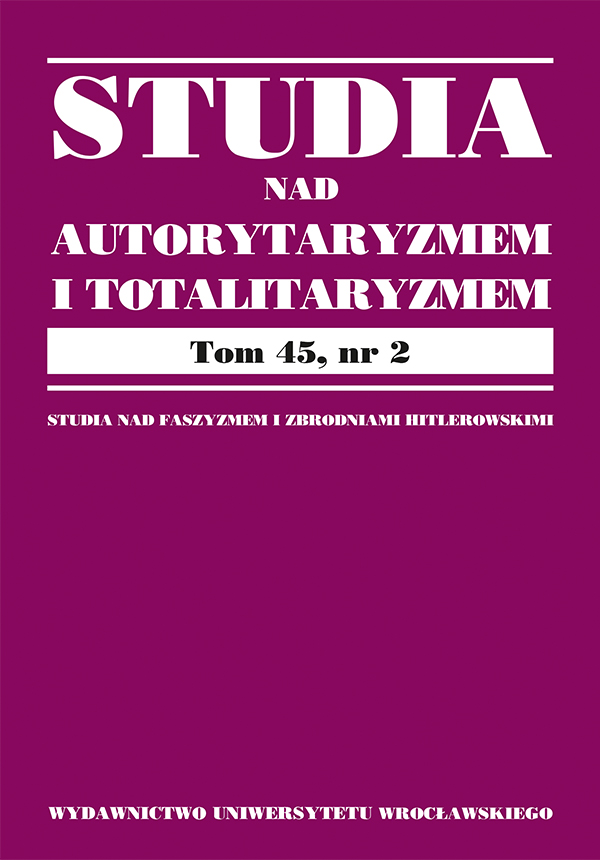Charakterystyka prawa totalitarnego i posttotalitarnego Adama Podgóreckiego
Characteristics of Adam Podgórecki’s totalitarian and post-totalitarian law
Author(s): Agata Przylepa-LewakSubject(s): Law, Constitution, Jurisprudence, Sociology of Law, Comparative Law
Published by: Wydawnictwo Uniwersytetu Wrocławskiego
Keywords: totalitarian law; post-totalitarian law; sociology of law; oppression; Adam Podgórecki
Summary/Abstract: The purpose of this article is to reconstruct the concept of totalitarian and post-totalitarian law as laid down by a great pioneer and populariser of the sociology of law, one of the finest sociologists of the twentieth century — Adam Podgórecki. This task is to be achieved primarily through the analysis of his works. However, the significance of the historical method cannot be dismissed in these considerations since the so-called “historical background of the period” related to the subjects taken up by Podgórecki bears significance for the characteristics he described. Undoubtedly, as he was an inquisitive researcher of the operation of law in social reality, and their mutual relationships — which he was famous for not only in Poland but also on the international arena — it is worth returning to his concept of these “phenomenal” phenomena, i.e., totalitarian law and post-totalitarian law. The researcher emphasized that in the 20th century, even in societies that were not directly affected by totalitarianism, its indirect impact can be observed. Also, he explained that it was necessary and important to study totalitarian social engineering, its roots, and consequences, because of the inherent threat of the re-emergence of totalitarian and post-totalitarian societies in the future. Law, according to Adam Podgórecki, is a petrified oppression. His analysis of totalitarian and post-totalitarian law revealed that the phenomenon of totalitarianism is too complicated to be compressed into a single theoretical concept. He called for totalitarian law and its heritage to be studied in an interdisciplinary and multidimensional way, that is, combining several levels of theoretical and methodological analysis, which he tried to substantiate. In order to create a universal definition of totalitarian law, he focused on listing its characteristics. He presented post-totalitarian law, in turn, as an internally coherent effect of the long-lasting influence of the authoritarian regime. To confirm this thesis, he pointed to circumstances that reveal traces indicating the impact of totalitarianism on its successor, which is paradoxical at times. Podgórecki’s thoughts focused on the experiential study of law, aimed at helping to formulate rational guidance for the legislature, which inspires the search for the source of these views, and his original, though often controversial theories, prompt reflections on their topicality. Analysis of Adam Podgórecki’s works leads to the conclusion that his characterization of totalitarian and post-totalitarian law, although not without its disadvantages, has many merits. It is done in an insightful, nuanced, and precise way, does not fall into simple schemes, and is characterized by originality and consistency in the application of his previous works.
Journal: Studia nad Autorytaryzmem i Totalitaryzmem
- Issue Year: 45/2024
- Issue No: 2
- Page Range: 147-160
- Page Count: 14
- Language: Polish

